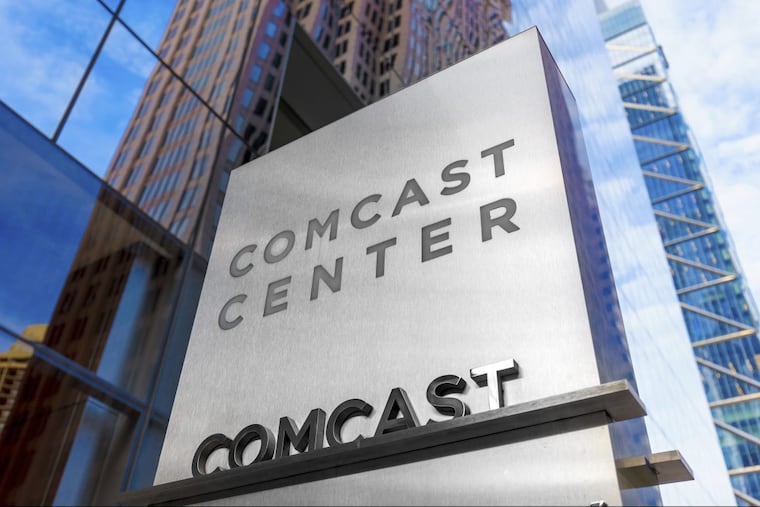Comcast posts a one-time $12.7B gain on Trump tax bill
Comcast Corp. wins big with a one-time $12.7 billion gain on Trump tax reform. The cable giant stabilized television losses.

Cable giant Comcast Corp. stabilized television-subscriber losses in the fourth quarter and posted a big one-time non-cash gain of $12.7 billion on the Trump tax overhaul that slashed corporate tax rates. Comcast shed 33,000 pay-TV customers, a huge improvement from the 125,000 in pay-TV losses in the third quarter, as it found some footing in its competition with online streamers and the legacy telephone companies AT&T Inc. and Verizon Communications.
But the threat remains: Netflix added millions of subscribers to its on-demand streaming service in the fourth quarter, sending its stock-market capitalization — or the value of the company based on its stock price — over $100 billion for the first time this week.
Dave Watson, the head of the cable division, said that Comcast is pivoting toward the high-speed internet business and the company sees "connectivity" as opposed to television as the future growth platform. "We have transitioned more and more toward broadband," he said.
Comcast added 350,000 high-speed internet customers in the fourth quarter, bringing the total gain to more than one million for the year.
Cable-TV revenue rose 1.5 percent in the fourth quarter while high-speed internet revenue sped ahead 8.4 percent. Comcast executives also disclosed that since the launch of Xfinity Mobile last May, the company has enrolled 380,000 smartphone subscribers and expects to heavily market Xfinity Mobile in 2018.
The cable giant sat out the latest round of media mergers as AT&T inked a deal for Time Warner and Walt Disney Co. grabbed the Fox entertainment assets from the Murdoch-controlled 21st Century Fox. Industry observers are waiting to see whether the Justice Department prevails in its antitrust suit to block AT&T/Time Warner, which is expected to go to trial in March.
Comcast CEO Brian Roberts said on the Wednesday conference call that the company was looking for deals but also "there is nothing we feel we need to acquire."
Not only have Wall Street analysts expressed concern over the cable-TV business, but some analysts also think that NBCUniversal, which Comcast acquired in 2011, could be running out of growth options. The Universal studio had record profits in 2017 and might not repeat the performance in 2018, and digital advertising on Facebook and Google has drained buoyancy out of television advertising.
"The good news is that television advertising is roughly flat," said Steve Burke, the head of Comcast-owned NBCUniversal.
Burke added on the conference call that "trees don't grow to the sky," in reference to future growth at NBCUniversal, but he remained optimistic that the Comcast unit could find new business in entertainment-related consumer products and Universal theme parks.
A goal also is to release four animated feature films a year through the Universal and DreamWorks studios, Burke said.
Fourth-quarter revenue at Comcast rose 4.2 percent to $21.9 billion and net income soared 550 percent to $15 billion with the one-time tax gain of $12.7 billion. After adjusting for the tax-related gain, per-share net income advanced only 9 percent in the fourth quarter.
For all of 2017, Comcast revenues rose 5.1 percent to $84.5 billion and net income, again helped out by the Trump tax bill, jumped to $22.7 billion from $8.7 billion.
Comcast chief financial officer Mike Cavanaugh said the one-time tax gain is a result of Comcast's corporate tax rate falling to 24 to 26 percent from 35 to 37 percent.
Other corporations also have announced big one-time tax-related gains. On Tuesday, Verizon pegged its Trump tax-related benefit to $16.8 billion.
Comcast announced in December $1,000 bonuses for most of its full-time employees as a result of the extra cash available in corporate coffers with the lower federal tax rates and on Wednesday said it would boost its annual dividend 21 percent to 76 cents a share, a higher-than-usual dividend hike.